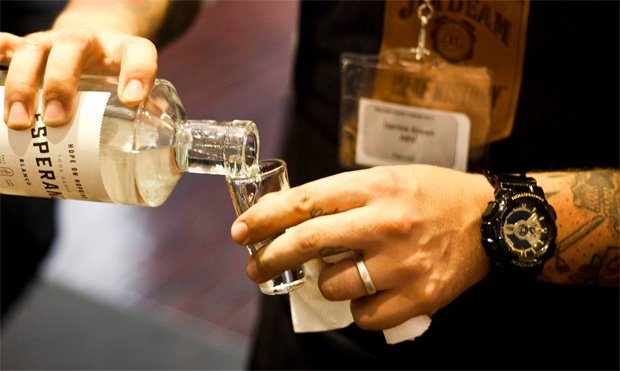Well-known drinks guru Stephanie Simbo has just launched a school dedicated to teaching ex-inmates how to make cocktails, and more! Food24 caught up with her to find out all about it in this exclusive interview.
Tell us a bit about the Beyond Bars Institute.
Beyond Bars Institute is a hospitality school for rehabilitating ex-offenders through experimental learning processes.
Experimental?
Yes. It involves multi-disciplinary courses and cross-disciplinary education methods.
Interesting … so how long is the course and what does it cover?
It’s a six-month course, which covers the basics of hospitality, from customer service to sommelier training. The time is divided between theoretical classes and practice at various bars, hotels and restaurants.
Added to this, we have a life-skills segment, which aims at enhancing cognitive development with courses such as conflict prevention, creative writing, coding and food science. There’s also community service involved, helping charities all over town. We then place the graduates in full-time positions with our partners.
Nice. Which partners?
We have a few great ones, including Orphanage Cocktail Emporium.
ALSO READ: 6 Myths about whisky that seriously need to be broken
Fantastic! And how has the rest of the local hospitality industry received the idea?
Very well! Various experts in their fields – molecular mixology, service and front of house, spirit education – recently gathered at our Beyond Bars Forum to share ideas and help us with our course. Nick Koumbarakis from Bacardi and Raymond Endean from Orphanage have both even written chapters of our course manual.
Several key industry players have also offered to be mentors to our students. Locals, like Johnny Bezuidenhout from Arcade in Cape Town, but also internationals like Ann Tuennerman from Tales of the Cocktail in New Orleans and Steve Schneider from Employees Only in New York.
You mentioned the students are former inmates. How are they selected?
Nicro is an NGO aiming at fighting recidivism and promoting non-custodial sentences. With their help – and that of the justice department – we select about 50 candidates from Pollsmoor Prison who are either on parole or have finished their sentences. We then reduce that to 10 after a tough selection process.
For us laymen, what’s recidivism?
It’s the relapse into crime, usually due to the lack of alternatives.
Okay, so I assume recidivism is one of your objectives too. What else do you hope to achieve with the school?
Correct. The recidivism rate of the prison’s population is currently 87%. Our goal is to reduce that by 20% within three years. We strongly believe that a good education is the key to breaking the cycle of poverty, and that it can create a better South African society. By educating our candidates, we aim to help them face the difficulties of coming home, make them fit for the work environment and ultimately secure them a sustainable future.
It sounds like this is quite a passion of yours. What motivated you to create Beyond Bars?
Someone once told me that second chances are not given to make things right, but instead to prove that we could be better even after we fall.
My brother fell when I was 10. He went to jail, after the cultural centre where he was employed closed. To survive, he got into trafficking, and he got caught.
As a younger sister, I was worried and wanted to help. Coming from a difficult neighbourhood, there weren’t many alternatives, but I always believed that education was the way out. Since the market is saturated in programs focusing on crime prevention, I wanted to help the ones often left behind, who no one believed could also have their redemption.
Redemption seems like something worthy of support. How can people help?
We have an excellent BEE status – perfect for CSR – so we invite corporations to sponsor a student; to invest in the future of South Africa, one former inmate at a time.
The cost of the program is R12,500 per month per student. This covers:
• Course fees, accommodation, school supplies and uniforms
• A salary for the student
• Regular monitoring by a qualified social worker
• A mentor with more than 10 years of experience
• General educational support
• An exam
• A job placement, if the exam is successful
Wow, that includes a lot! And how can individuals get involved?
You can book us for catering, join us for a fun masterclass or offer material donations like equipment or stock. You can also tell your CSR department at work about us, and like our social media platforms and spread the word!
Instagram: @bbakademia
Twitter: @BBAkademia
Facebook: @BeyondBarsAkademia
To find out more, email Stephanie on sps@beyondbars.co.za.
ALSO READ: Joburg bar’s popular Dawa cocktail makes the list of 35 Must-Try Cocktails Around the World
For more boozy news catch Leah on Twitter or Instagram.
SaveSaveSave

